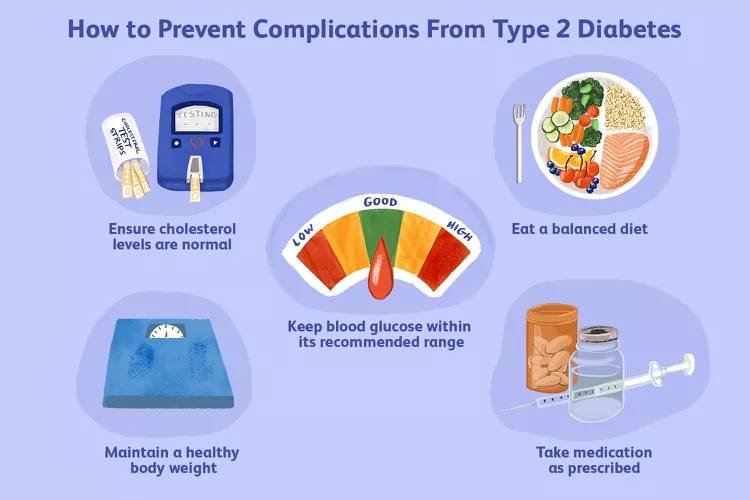
Preventing type 2 diabetes is possible through lifestyle changes and, in some cases, medication. Here are several strategies to help reduce your risk of developing type 2 diabetes:
Maintain a Healthy Weight: Being overweight or obese is a significant risk factor for type 2 diabetes. Losing weight through a balanced diet and regular exercise can help reduce your risk.
Eat a Balanced Diet: Focus on a diet rich in fruits, vegetables, whole grains, lean proteins, and healthy fats. Limit your intake of sugary and highly processed foods.
Portion Control: Watch your portion sizes to avoid overeating, which can lead to weight gain and increased insulin resistance.
Regular Physical Activity: Aim for at least 150 minutes of moderate-intensity aerobic exercise or 75 minutes of vigorous-intensity aerobic exercise per week. Incorporate strength training exercises as well.
Monitor Carbohydrate Intake: Pay attention to the type and quantity of carbohydrates you consume. Complex carbohydrates like whole grains and legumes are better choices than simple sugars.
Manage Stress: Chronic stress can lead to overeating and weight gain, so it’s essential to find healthy ways to manage stress, such as through exercise, relaxation techniques, or mindfulness.
Get Adequate Sleep: Aim for 7-9 hours of quality sleep per night. Poor sleep can affect insulin sensitivity and increase the risk of diabetes.
Limit Alcohol Consumption: If you drink alcohol, do so in moderation. Excessive alcohol consumption can increase the risk of diabetes.
Quit Smoking: Smoking is associated with an increased risk of diabetes. Quitting can improve your overall health.
Regular Checkups: Visit your healthcare provider for regular checkups, including blood sugar tests, to monitor your diabetes risk and overall health.
Medication: In some cases, your doctor may prescribe medications to help lower your blood sugar levels or reduce your risk of developing type 2 diabetes, especially if you have other risk factors.
It’s important to note that while these lifestyle changes can reduce your risk, they cannot guarantee that you won’t develop type 2 diabetes. Some factors, like genetics and family history, are beyond your control. However, making these healthy choices can significantly lower your risk and improve your overall well-being.
If you are concerned about your risk of developing type 2 diabetes or if you have a family history of the condition, it’s a good idea to consult with a healthcare professional for personalized guidance and monitoring





